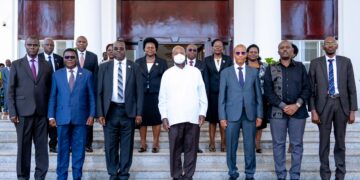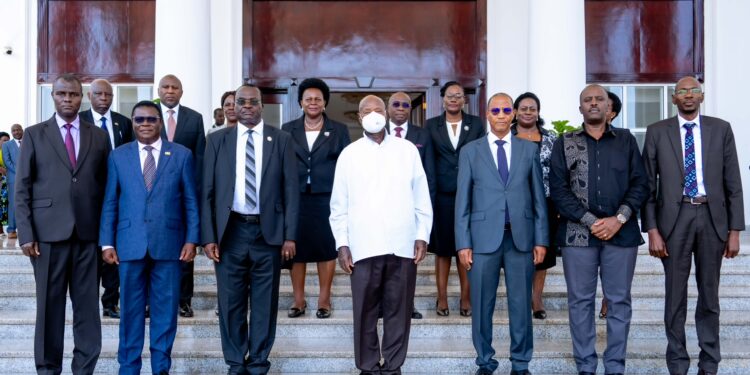President Yoweri Kaguta Museveni has presided over the swearing-in ceremony of nine newly appointed judges at State House, Entebbe.
In his address, the President emphasised the critical role of the judiciary in upholding the rule of law and ensuring justice for all Ugandans.
He called for a legal system that reflects Uganda’s cultural and historical context rather than being solely influenced by Western models.

Among those sworn in was Hon. Justice Muzamiru Mutangula Kibeedi as a Justice of the Supreme Court.
The newly appointed Justices of the Court of Appeal included: Hon. Justice Ssekaana Musa, Hon. Lady Justice Sabiiti Cornelia Kakooza, Hon. Lady Justice Stella Alibateese, Hon. Lady Justice Florence Nakachwa, Hon. Justice Byaruhanga Jesse Rugyema, Hon. Justice John Mike Musisi, Hon. Lady Justice Ketrah Kitariisibwa Katunguka and Hon. Lady Justice Nambayo Esta.
These appointments, made by President Museveni on February 7, 2025, are expected to strengthen the judiciary’s capacity to deliver timely and effective justice.
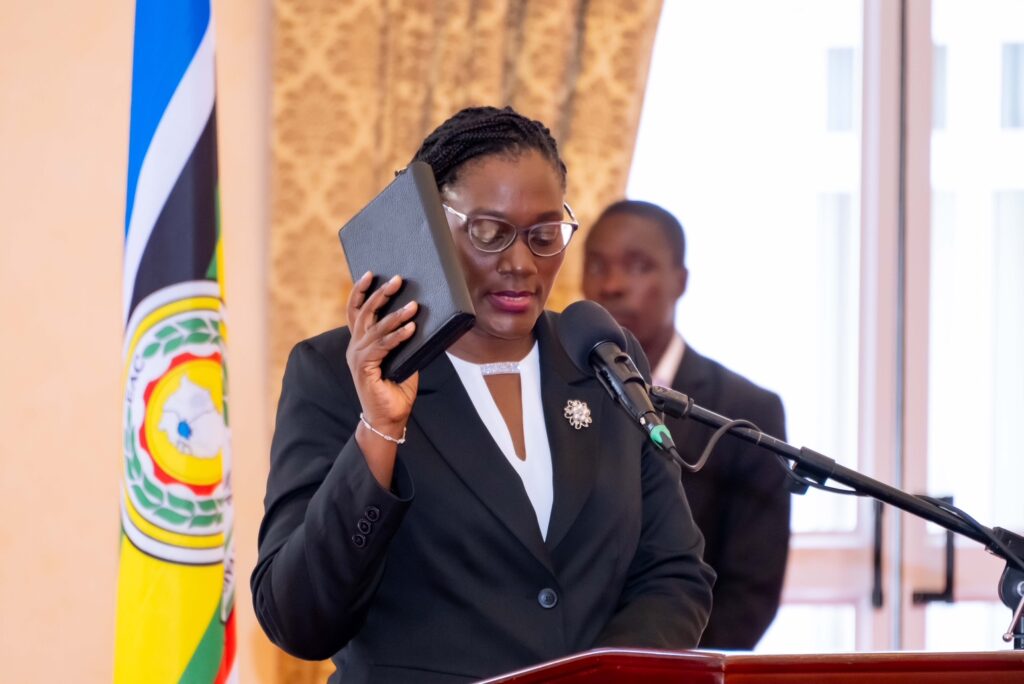
Justice in the Ugandan Context
President Museveni underscored that justice should be shaped by societal norms and evolving traditions. Using historical practices such as wife inheritance among the Banyankore as an example, he noted that while some customs once served a social function, changing times necessitate their review and adaptation.
Reflecting on Uganda’s political journey, the President emphasised the role of freedom fighters in shaping the country’s legal framework.
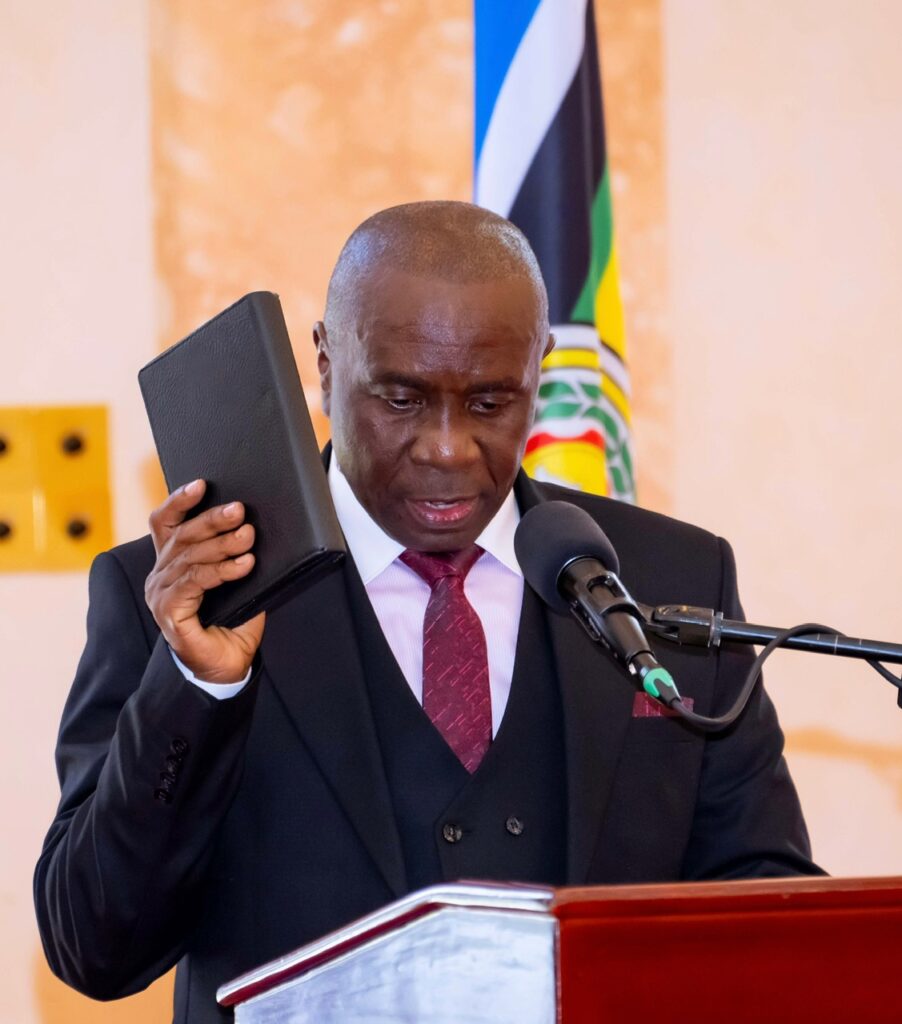
“In the 1960s, we argued that justice should be tailored to our society, not imposed by European standards. That is how we have understood truth and justice,” he said.
On crime and punishment, President Museveni reaffirmed his stance on the death penalty, arguing that African traditions traditionally demanded full accountability for crimes such as murder.
He also reiterated his long-standing opposition to granting bail for capital offenders, stating that it undermines justice and provokes public outrage.

Military Courts and National Security
Defending the role of military courts, the President highlighted their importance in maintaining discipline within the army and handling cases involving armed criminals.
He cited their effectiveness in dealing with cattle rustlers and Karachunas, stating that military trials helped remove over 3,000 offenders from circulation, giving them an opportunity for rehabilitation.
He also criticised Western nations for questioning Uganda’s use of military courts for civilians involved in armed crimes while simultaneously endorsing values contrary to African traditions.
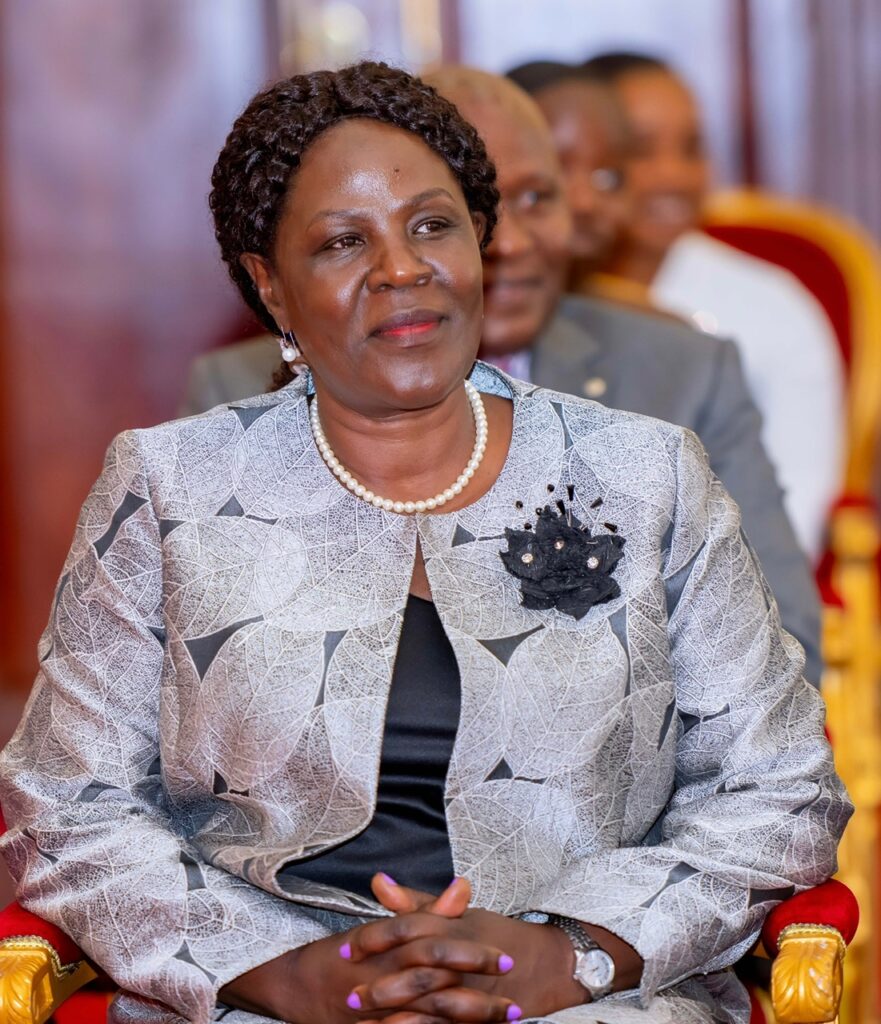
“They claim it is ‘irregular’ to try armed civilians in military courts, yet they believe a man can marry another man. What kind of reasoning is that?” he asked.
Strengthening the Judiciary
The President addressed concerns over judicial funding, emphasising the need for prioritisation in government spending.
Drawing from his experience during the liberation struggle, he recounted a meeting with Muammar Gaddafi in 1981, where he requested only guns and bullets instead of financial aid, stressing that essential resources should take precedence over luxuries.
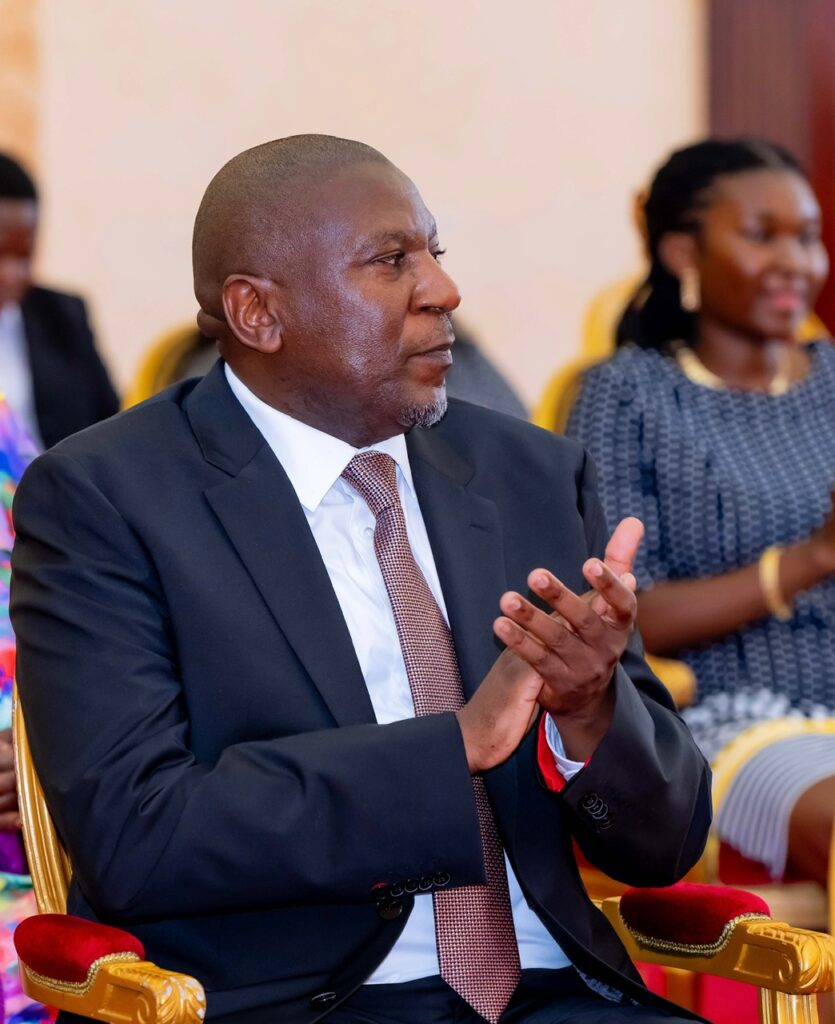
Despite Uganda’s removal from the AGOA trade benefits and the suspension of USAID operations, President Museveni assured the nation that the economy remains strong, with investments in infrastructure and agriculture driving growth.
He emphasised the importance of railway expansion as the next key development goal.
Chief Justice Alfonse Owiny-Dollo welcomed the new judicial appointments, describing them as a historic milestone.
He praised the President for fulfilling his commitment to strengthening the judiciary, noting that the appointment of one Supreme Court Justice and nine Court of Appeal Justices was unprecedented.
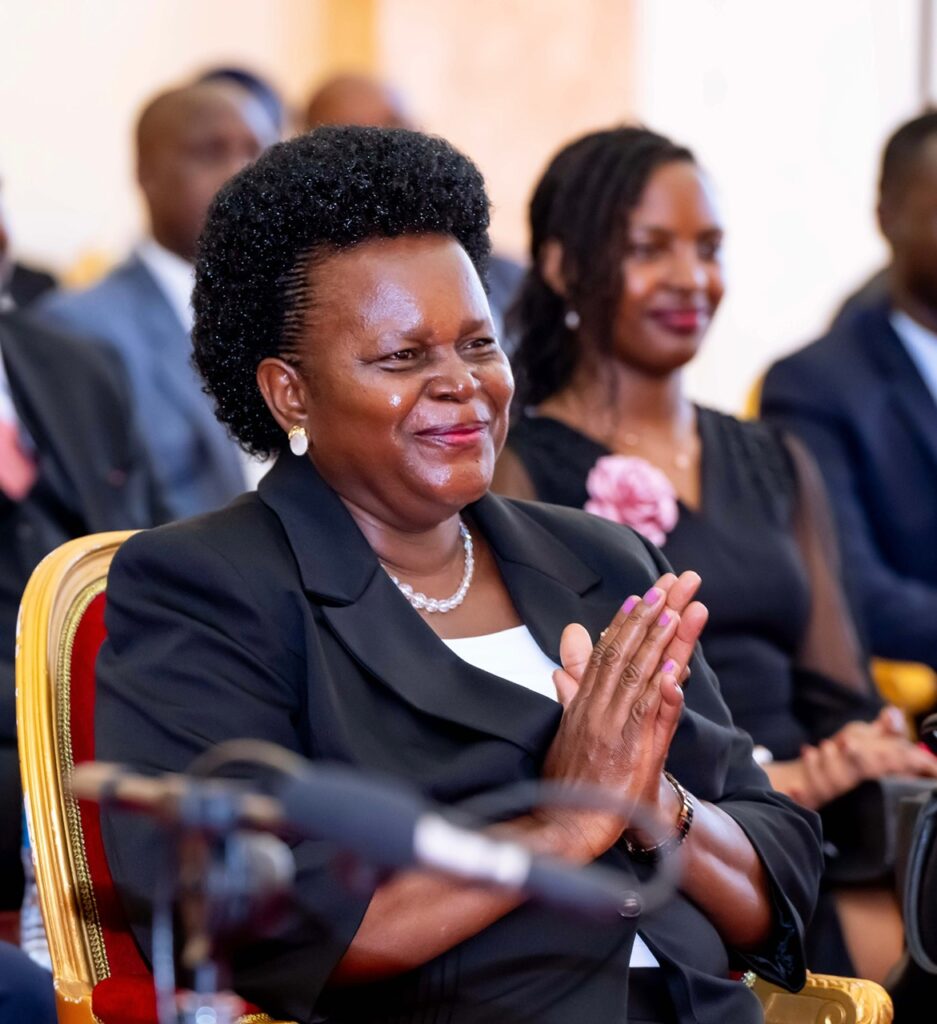
With 21 Justices now at the Court of Appeal, he expressed optimism about the establishment of regional appellate courts in Gulu and Mbarara to improve judicial efficiency.
He also highlighted Uganda’s leadership in Alternative Dispute Resolution (ADR), emphasising its role in reducing case backlogs and promoting reconciliation.
Minister of Justice and Constitutional Affairs, Hon. Norbert Mao, commended President Museveni for expanding the judiciary, emphasising its impact on economic stability.
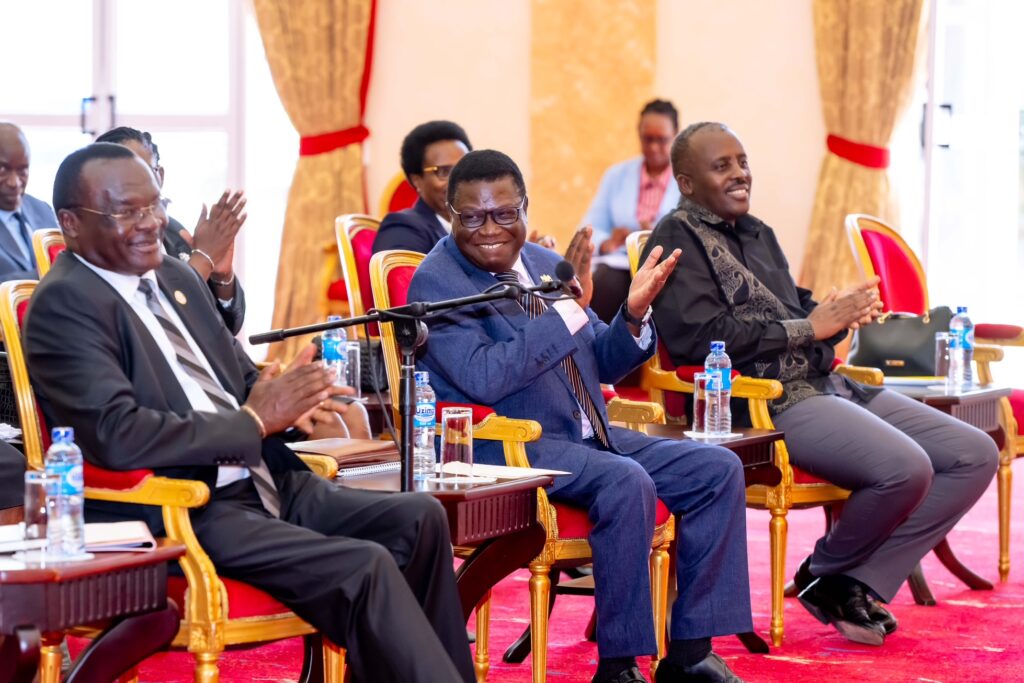
He noted that trillions of shillings remain tied up in commercial disputes, making an efficient legal system crucial for business growth.
Hon. Mao also underscored the responsibility of the newly appointed justices, urging them to uphold judicial independence while ensuring fair and impartial justice. He reiterated the need for cooperation among the Executive, Legislature, and Judiciary in safeguarding Uganda’s Constitution.
The ceremony was attended by Hon. Jackson Kafuuzi, Deputy Attorney General, Gen. David Muhoozi, Minister of State for Internal Affairs, and family members of the newly appointed judges, among other dignitaries.
